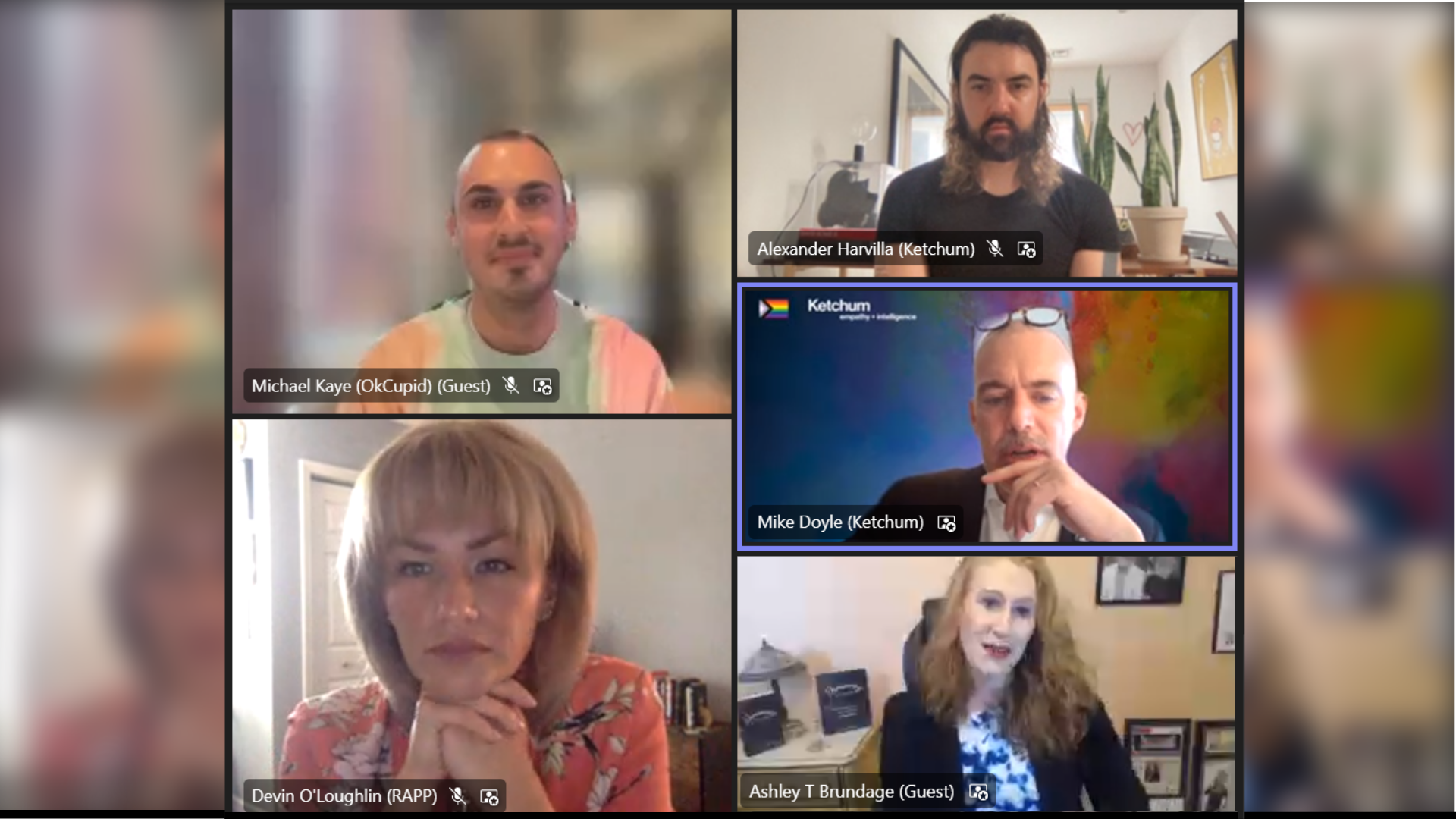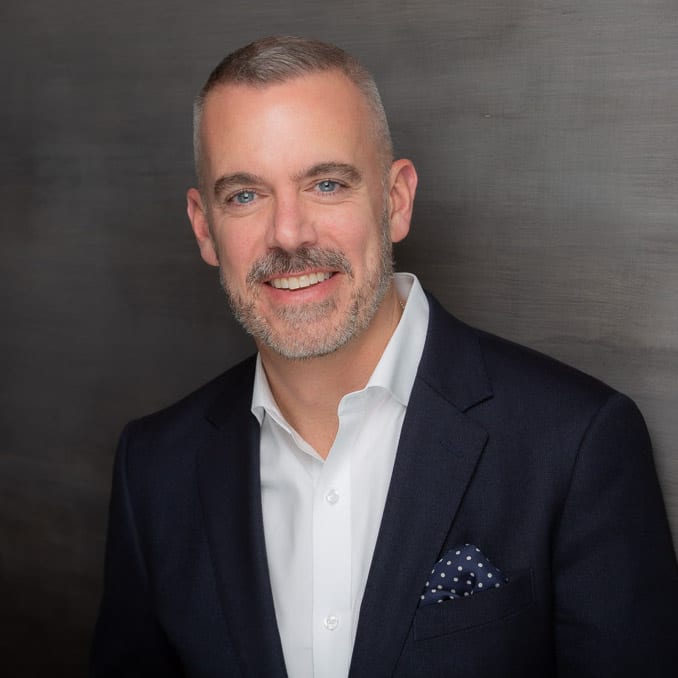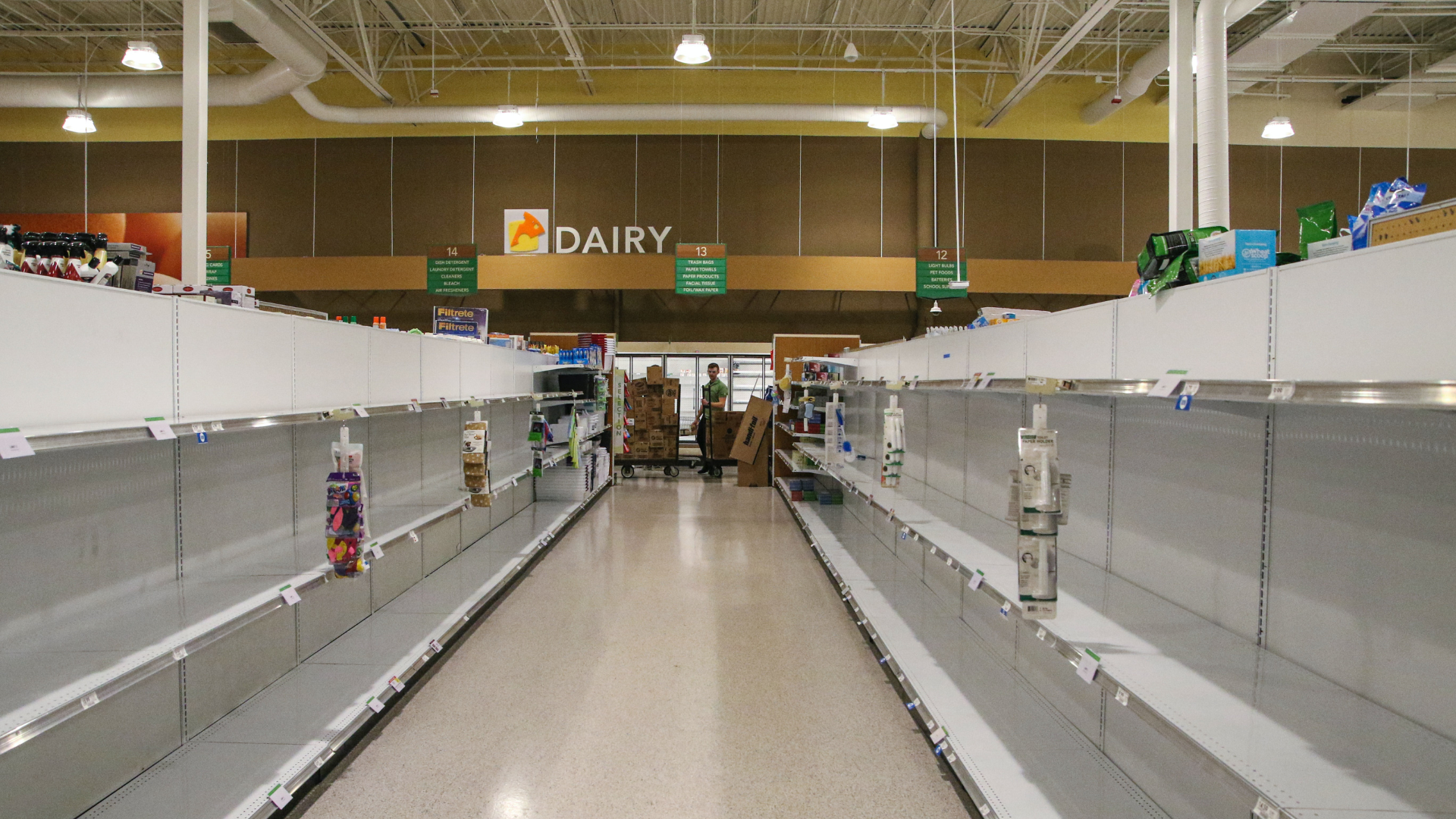Representation matters.
That was the overarching theme of a Pride communications panel on inclusive brands that I had the privilege of moderating for 150+ Ketchum employees earlier in June, part of a month-long Pride programming series at the agency.

As communications consultants, we have an opportunity – a mandate, really – to counsel our clients on decisions they can make and actions they can take to make progress. Pride month can serve as a reminder to us all that brands can make exponential progress when they engage the LGBTQ+ community, not just because of its roughly $6 to 7 billion in annual purchasing power, but because it’s a moral imperative in the necessary work needed to accelerate acceptance.
Corporations can play a vital role – because consumers are paying attention to them. Surveys from the Kearney Consumer Institute reveal that while consumer trust in government, media and religion have plummeted in the past two decades, consumer trust in businesses has actually risen. That means there’s an opportunity for brands who value the importance of inclusivity to persuade consumers to think likewise, to drive both business and societal change.
While brands have an immense opportunity to impact and influence existing and emerging generations, they also can leverage – with guidance from their communicators – the power of inclusivity to bolster their own business results. Inclusivity can make both dollars and sense given the rise in LGBTQ+ visibility and purchasing power.
But what can each of us, individually, do to ensure inclusivity takes precedence in our professional and personal lives? Our four panelists – leaders in and advocates for the LGBTQ+community – shared compelling insights on that and related topics.
As Alex Harvilla, our vice president of digital strategy here at Ketchum, noted, movements start in small conversations.
“Have conversations, in one-on-ones with clients, to show them the business case for devoting some of their campaign dollars to (reaching) the LGBTQ+ community,” Alex implored. “The way to change the minds of people who are focused on the bottom line is to paint a really good business case for inclusion. Because inclusion IS good for business.”
It’s certainly been good for OKCupid, a pioneering online dating app that has evolved into one of the most popular matchmaking sites for people of all representations. Michael Kaye, associate director of global communications at OKCupid, said that he chose to join the company because of its commitment to inclusivity – adding that it is the first leading dating app to introduce a pronoun feature.
“We understand our responsibility as a platform to foster conversation and connection,” said Michael. “Some of these conversations are awkward for people, so we give them the tools to figure out how to bring their full and true selves to someone they’re talking to. We’re a safe and comfortable space to look for love.”
But the world is often not safe for people who differ from “the norm,” however that may be defined. Panelist Ashley T. Brundage, who for a time battled homelessness and discrimination as a male to female transgender woman, shared the chilling fact that Black transgender women are being murdered at a much higher commensurate rate than white transgender women.
“Why do we not galvanize, like we did after (the murder of) George Floyd, for transgender women?” asked Ashley, who is president & CEO of Empowering Differences. “’Pride’ is not just a party; it’s about taking actions, empowering actions. It’s what we can do as leaders to drive impact.”
Devin O’Loughlin is driving impact as an ally. As global co-chair of OPEN Pride, an LGBTQIA employee resource group committed to inclusion and diversity efforts across Omnicom and its agencies, Devin is putting to good use her love language … which is “acts of service.”
“We’re all allies, in a sense, to some community,” explained Devin, whose day job is as global chief diversity, equity & inclusion & communications officer at RAPP. “It takes intention and attention to be more present, more inclusive. If you want to make the most impact, reach out to someone in the community and ask what action I can take to make a difference.”
I encourage you to read a recent post from some of my Ketchum colleagues that asks if corporate America has the fortitude for true DE&I. I believe we do, and Ketchum can partner with you on that journey. Please reach out if you would like to have a chat about how.



